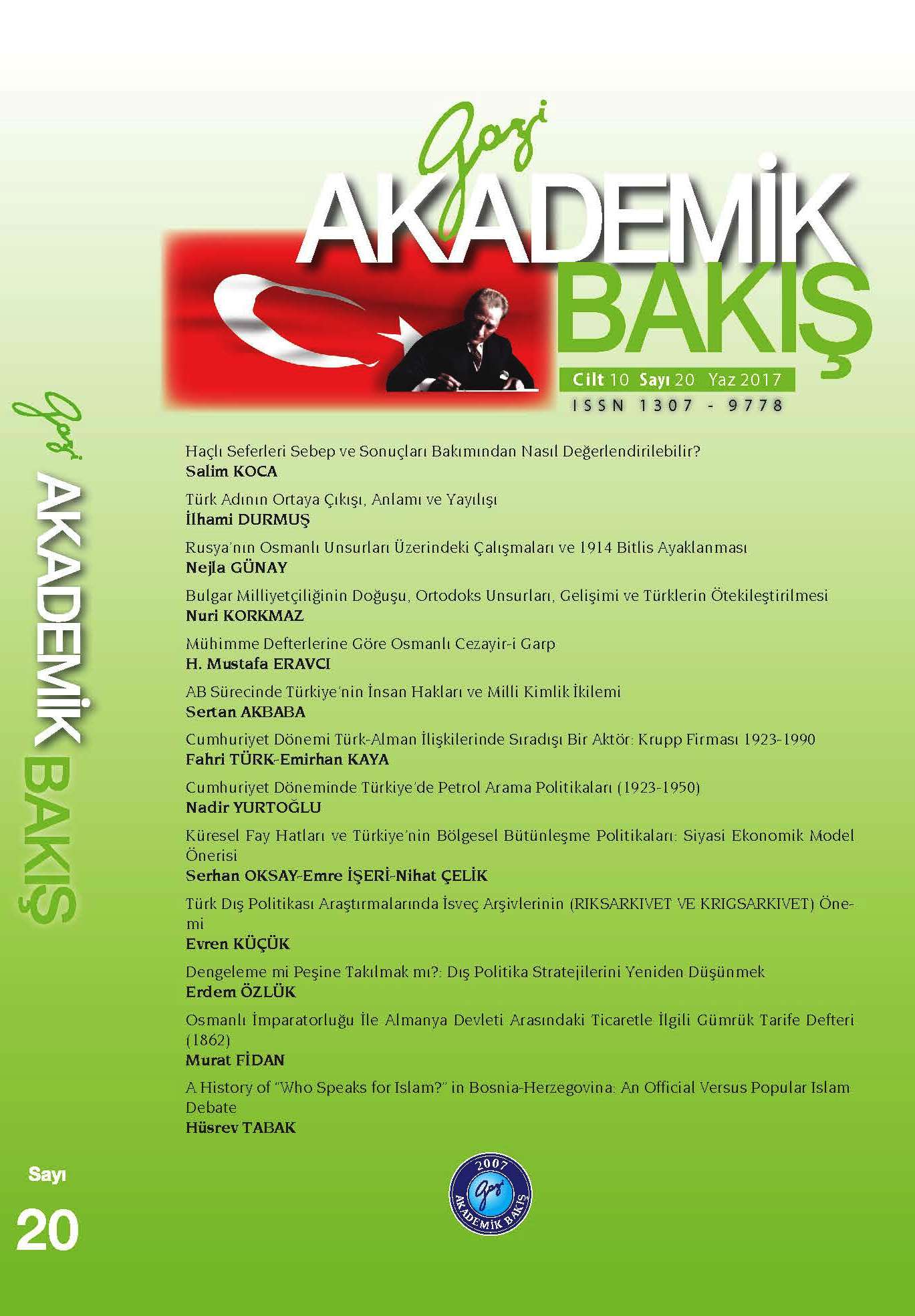Haçlı Seferleri Sebep ve Sonuçları Bakımından Nasıl Değerlendirilebilir?
How Can the Crusades Be Evaluated in Terms of their Causes and Effects?
Author(s): Salim KocaSubject(s): Christian Theology and Religion, Military history, 6th to 12th Centuries, 13th to 14th Centuries, History of Religion
Published by: Gazi Akademik Bakış
Keywords: Byzantium; Sultan Kılıç Arslan I; Homeland Defense; Crusader Armies; Crusader States;
Summary/Abstract: A great authority gap and havoc occurred in Western Europe following the collapse and disintegration of the Carolingian Frankish Empire in 843. Being fed with the ideas of the “Theocratic Perception of History” for centuries, the popes intended to benefit this situation and desired to establish a world empire by transforming their office of Papacy into an instrument of sovereignty. They pointed Jerusalem as a target to the Christian population of Western Europe and got engaged in the usage of propaganda containing a powerful agitation. These propagandas soon came up with the results the Papacy wanted. On the other hand, being crushed under economic hardships and filled with religious enthusiasm, the masses of the West wished to obtain heaven, worldly possessions, land, wealth, prosperity and happiness. Thus, when the Pope’s ambitions of establishing a world empire united with the desires of the masses, the world of Western Christendom suddenly went into action in the year 1095. Eight great Crusades were launched on Palestine, the Holy Land in the eyes of the Western Christian world. The first three of these crusades targeted the Anatolian Seljuk Sultanate. These crusades resulted with numerous progress regarding the Anatolian Seljuk Sultanate, Byzantium, Armenians, Western Christian world, Christianity and Papacy. They also caused the Muslim Turkish world and the Christian Western world to know each other, and resulted with the opening of the West to the outside world, transmission of the inventions and accumulations of the Islamic world to the West and the beginning of Orientalist activities. In our paper, we will attempt to clarify the issue as much as we can by determining the results related with the topics we mentioned above. We can mention here that Sultan Kılıç Arslan I, the ruler of the Anatolian Seljuk Sultanate at that time, conducted the most perfect and successful homeland defense against the Western world in Turkish history. More significantly, with this unprecedented homeland defense, he has caused the Western world to accept and recognise the fact that Anatolia had become a Turkish land. Thus, as the Westerners saw during the Second Crusade (1147-1148) that Anatolia was already filled with the Turks who vigorously defended it, they started to call the land “Turkey” (Turkhia, Turquia) afterwards. Following the Seljuk victory at Myriokephalon, Byzantium completed the picture by accepting this fact already put forth by the Western world.
Journal: Gazi Akademik Bakış
- Issue Year: 10/2017
- Issue No: 20
- Page Range: 15-35
- Page Count: 21
- Language: Turkish

